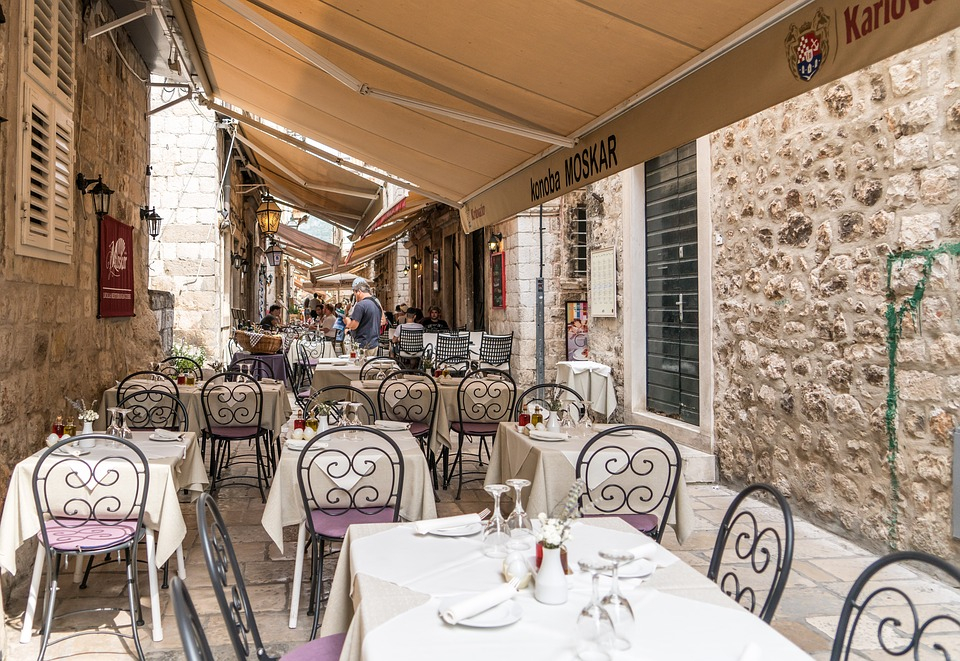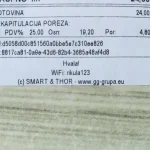
December the 11th, 2020 – The ongoing coronavirus crisis has dealt a heavy blow to the economy this year, and countries like Croatia which rely very heavily on tourism and hospitality have lost out tremendously. Croatian restaurants and cafes have lost an enormous 5.6 billion kuna since back in March when the pandemic first penetrated Croatia’s first lines of defence.
As Jadranka Dozan/Poslovni Dnevnik wirtes, the catering and hospitality sector has found it very difficult to accept the tightening up of the epidemiological measures which put the keys in the locks of Croatian restaurants, bars and cafes. Of course, they are not the only ones, as gym owners have also had to come to terms with the impossibility of that very same situation.
The alarming situation due to the restrictions is also being felt on the skin of the event industry. As the incidence of coronavirus infection remains high, additional restrictions by the National Civil Protection Headquarters will follow at the end of this week, primarily affecting the work of traders.
The president of the National Association of Caterers, Marin Medak, is now calculating that the work ban could be extended until the end of January 2021.
In addition to the battle over compensatory assistance measures, the owners of Croatian restaurants, bars and cafes are thus turning to the topic of facing future challenges and legal solutions for the sector in talks with government representatives. However, in the meantime, they are still trying to “negotiate” with the Headquarters to at least allow those who can and want to make coffee to do so for those remaining outside and taking it away.
The Voice of Entrepreneurs Association, on the other hand, accused the Government yesterday of making the new job preservation measures into ”just another spin”. They were disappointed by the Tax Administration’s instruction regarding the reimbursement of (part) of the fixed costs as part of support for the preservation of jobs.
Authorities failed fulfill the promises they made at meetings they’d held with entrepreneurs, the aforementioned association said, stating that, according to the Tax Administration, “employers should first pay their obligations, and only then will they receive a refund from the state.” In this situation, they argue, for most entrepreneurs this is mission impossible because everything they had to their names from previous years was spent during the first lockdown back in spring.
One indicator of the extent of the coronavirus crisis is the worrisome fiscalisation data, and the Ministry of Finance or the Tax Administration publishes that information weekly.
It has since been revealed that starting from March, the reported turnover of Croatian restaurants and cafes reached 8.74 billion kuna by the end of November. Compared to the same period last year, it is 39% or 5.58 billion kuna less. Of course, the decline is distributed unevenly; some within the industry have sunk far more than that, and some less than the average decline in fiscalised turnover suggests. In addition, since the beginning of the year, the decline is somewhat smaller because in the first two months of 2020, before the crisis began, Croatian restaurants and cafes recorded growth.
For accommodation services, on the other hand, data on fiscalisation indicates that their performance in the period from March to November was lower than last year by almost 57 percent or 5.7 billion kuna. Last year, it exceeded 10 billion kuna, and this year, the coronavirus crisis cut down it to 4.35 billion kuna.
The value of bills/receipts issued in the transport and storage sector fell by more than half, by almost 52 percent, down to 1.3 billion kuna when compared to last year’s impressive 2.7 billion kuna. More than halved turnover in year-on-year comparisons over the past nine months was also reported by activities related to culture and sports (arts, entertainment and recreation). In this group of activities, less than 603 million kuna in turnover was fiscalised, which marks a decrease of 52 percent or 664 million kuna when compared to last year’s far higher 1.26 billion kuna.
During the second wave of the pandemic, unlike during the first, hairdressers and beauty salons managed to avoid locking their doors and compared to last year, they recorded a decrease in turnover by 185 million kuna or 22 percent) Slightly stronger than hairdressers and beauty salons, the category of body care and maintenance activities was hit with a drop of 35 percent.
According to the percentage drop in fiscalised turnover, the coronavirus crisis hit the real estate business far more severely. With 109 million kuna in turnover since March, the tax data on this shows that this is a year-on-year decline of as much as 280 million kuna, or more than 70 percent. Although Croatian restaurants and cafes are the loudest when it comes to losses, this too is extremely concerning.
In contrast, Information and Communications is a segment of the business sector in which entrepreneurs haven’t recorded a negative impact as a result of the ongoing coronavirus crisis. However, this group of activities also recorded a decline in fiscalised turnover, albeit in single digits. The reported 1.04 billion kuna is only about 80 million kuna or a little more than seven percent less than how things stood last year.
Approximately the same percentage decrease is indicated by the data on fiscalisation for the activities of Agriculture, Forestry and Fisheries with 1.2 billion kuna worth of invoices issued compared to around 1.3 billion kuna’s worth issued in the comparable period last year.
Entrepreneurs within the Professional, Scientific and Technical Activities in the pandemic were struck with losses amounting to about 11 percent or slightly less than 290 million kuna in turnover. At the same time, a much more drastic decline was recorded in Administrative and support service activities, which reported a turnover of only 415 million kuna, whereas it stood at more than 1.7 billion kuna in 2019.
More detailed data shows that within the trade sector, as expected, super and hypermarkets suffered the smallest decline. The turnover of the category of non-specialised stores, mainly food, beverages and tobacco products, decreased by only 1.3 percent when compared to the comparable period last year from March onwards. A moderate 6.4 percent drop in turnover was also recorded in specialised stores, mostly in the food and beverage sector, but the turnover in the non-food trade sank significantly more.
For the latest travel info, bookmark our main travel info article, which is updated daily.
Read the Croatian Travel Update in your language – now available in 24 languages
Join the Total Croatia Travel INFO Viber community.









